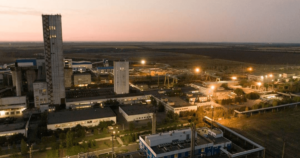
In 2023, Metinvest B.V. (Netherlands), the parent company of Metinvest Mining and Metallurgical Group, increased capital investments in Metinvest Pokrovskugol, which manages the enterprises of Pokrovskoye Coal Group (PGU), by 15.6% year-on-year to $126 million from $109 million.
According to a corporate presentation published on the Irish Stock Exchange on June 4, Metinvest increased its capex investments in Kametstal by 5% in 2023, to $42 million from $40 million.
Capex at Central GOK increased by 6.7% to $16 million from $15 million.
At the same time, the Group reduced investments in Northern GOK by 29.5% to $31 million from $44 million, in United Coal (USA) by 47.5% to $21 million from $40 million, in Ingulets GOK by 58.1% to $13 million from $31 million, and in other assets by 53.3% to $35 million from $75 million.
In general, Metinvest reduced its capital investments in 2023 by 19.8% compared to 2022, to $284 million from $354 million, while $65 million was invested in the steel segment last year ($99 million in 2022) and $213 million in the mining sector ($244 million).
At the same time, it is noted that the share of the mining segment in 2023 increased to 75% of total investment (+6% compared to 2022), the share of investments in capital repairs increased to 86% of total expenditures (an increase of 6% compared to 2022), while strategic investments amounted to 14% of the total.
The priorities of capital expenditures affected by the war were affected by the implementation schedules of strategic projects in accordance with the actual production configuration and the identified optimization measures. At the same time, the development of the strategy for key projects is ongoing. Maintenance projects continue to be implemented to ensure an adequate level of output capacity and provide technology to increase production at the Ukrainian assets after the end of the war.
In addition, the group has taken a number of measures to minimize potential damage in case of emergency power outages.
As reported, Metinvest’s consolidated net loss in 2023 amounted to $194 million, while in 2022 it reached $2.193 billion (down 11 times). Revenue fell by 11% from $8.288 billion to $7.397 billion in 2022, while EBITDA fell by 54% to $861 from $1.873 billion. At the same time, the steel sector’s revenue decreased by 15.2% to $4.846 billion, and the mining segment’s revenue decreased by 0.8% to $2.551 billion. Adjusted EBITDA of the Group’s steel division decreased by 40.4% to $159 million, and of the mining segment by 50.2% to $770 million.
“Metinvest is a vertically integrated group of steel and mining companies. Its enterprises are located in Ukraine – in Donetsk, Luhansk, Zaporizhzhia and Dnipro regions, as well as in Europe.
The main shareholders of the holding are SCM Group (71.24%) and Smart Holding (23.76%), which jointly manage it.
Metinvest Holding LLC is the management company of Metinvest Group.
CENTRAL GOK, INVESTMENTS, METINVEST, Каметсталь, Покровскуголь
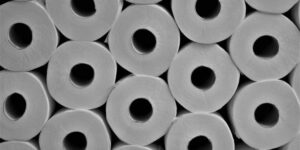
In the period from June 17 to October 24 this year, the shareholders of Kokhavynska Paper Mill JSC (KPM, Lviv region) will be paid dividends for 2023 totaling UAH 6.852 million out of the net profit of UAH 137.043 million.
According to the company’s publication in the disclosure system of the National Securities and Stock Market Commission (NSSMC), the relevant decision was made by the general meeting of shareholders on April 25.
Dividends will be paid in the amount of UAH 2.41 per share with a par value of UAH 0.25.
According to the NSSMC data for the first quarter of 2024, almost 12% of the company’s authorized capital belongs to the chairman of the supervisory board Mykhailo Tytykalo, his daughter and member of the SB Larysa Tytykalo – 8.49%, his granddaughter Maria Goryanskaya – 10%, Tamara Tytykalo – 15.5%, members of the Supervisory Board Oleksandr Teletkov, Igor Kostyrko and Roman Pirig – more than 11.12% and 11.92% and 7.88%, respectively, and Oksana Serembytska – 7.88%.
The authorized capital of the company is UAH 711.83 million, divided into 2 million 847 thousand 328 shares.
Operating since 1939, Kokhavynka Paper Mill produces base paper for sanitary and hygiene products, as well as toilet paper and paper towels under the Kokhavynka trademark (made from waste paper) and the Kokhavynska Papirnya and Mildi trademarks (cellulose).
As reported, in 2023, the factory increased its production by 18% compared to 2022, to UAH 1 billion 151.2 million. Net profit increased 2.7 times.
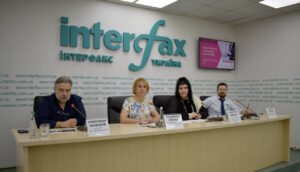
Ukrainian exporters of products to EU countries and the Ukrainian government should pay more attention to the problem of decarbonization within the Green Deal strategy and, in particular, CBAM – an additional tax for goods with a high level of carbonization during production, which comes into effect from 2026.
This opinion was expressed by experts and representatives of companies during a roundtable discussion held at the press center of the Interfax-Ukraine news agency on Tuesday on “The impact of CBAM on domestic exporters”.
Olga Kulik, Director of the Department of Ecology of Energy and Green Economy of the Federation of Employers of Ukraine, noted that CBAM is very important, it affects exporters, every enterprise.

According to her, during a recent business trip she communicated with representatives of enterprises and structures in Europe, they collect information on CBAM reports. At the same time, if European companies realize the requirement for verification of emission reports, Ukrainian enterprises have problems in this direction, in particular, Ukrainian verifiers must be accredited by the European Commission.
“Verification by data – time is going fast, and we cannot delay these problems. Therefore, the Ministry of Economy together with the Ministry of Ecology will negotiate so that verification will be accredited in the EC. But so far the issue has not been resolved,” Kulik said.
On the other hand, according to her, European countries also have certain problems with the unified standardization of a number of points, with further steps to implement the “green” initiative. It is necessary to create a working group, for work within the framework of which Ukraine should receive an invitation.
In turn, the director of the information and analytical center GMK Center Stanislav Zinchenko stated that by implementing the SWAM mechanism the EU protects its markets. And in the future similar mechanisms will be introduced in other countries, such as the UK, USA, Australia.
“This is a new wave of protectionism, this is ‘green’ protectionism and it will step the planet. It will lead to a reformatting of flows, but it will also help reduce emissions,” Zinchenko predicts, adding that there are currently not enough emission verifiers in the EU, in Ukraine and globally.
“Less than 10% of the 20,000 companies in Germany that were supposed to report on time have done so. And in Ukraine there are also problems with the reports, with the methodology. A very crude procedure, a crude experiment, but it is starting to affect Ukrainian companies. Ukraine does not have a single document on SWAM”, – stated the expert.
According to him, due to force majeure circumstances because of the war, Ukraine may not be subject to the requirement to submit verified reports from 2026, but only declarative reports on SWAM, without payment for certificates.
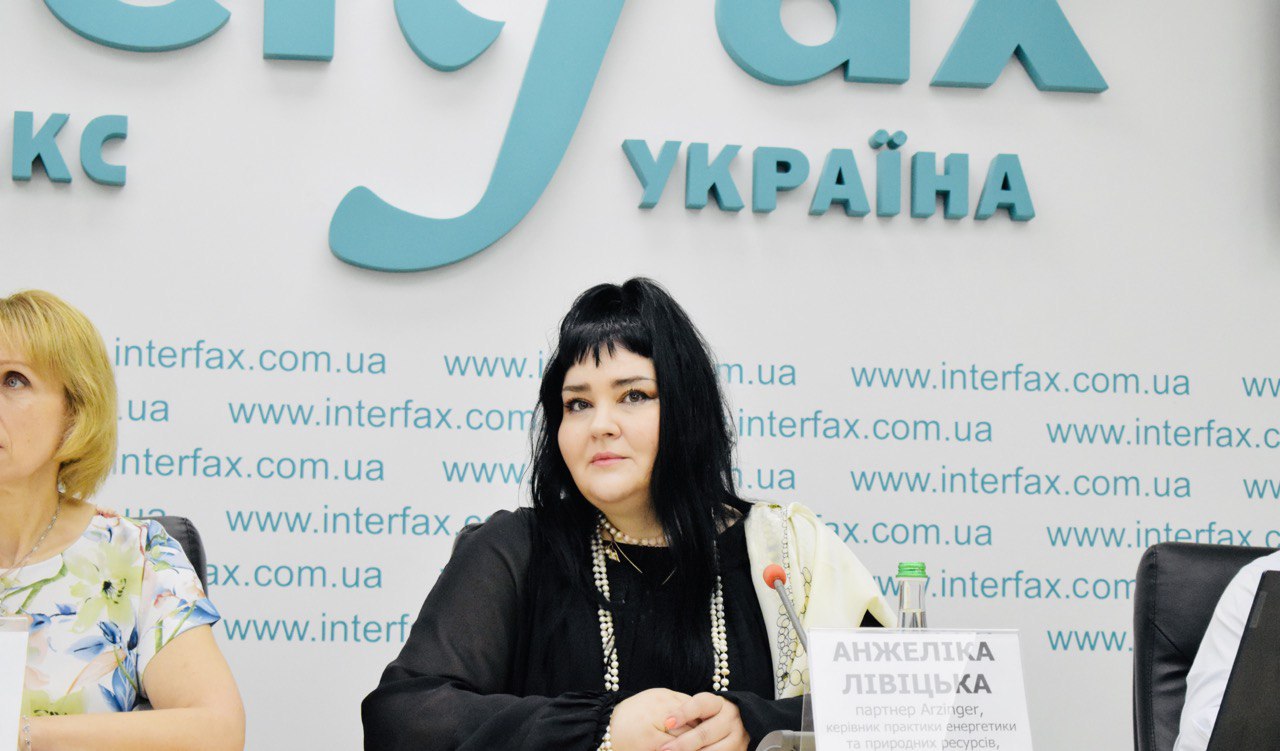
According to him, in case of introduction of strict requirements of the SWAM, Ukraine’s losses, if calculated at 2023 prices, may amount to $600 million for pig iron exports (“minus” 1.4 million tons), $640 million for semi-finished products, and $200 million for rolled products. In general, losses at steel enterprises may reach $1.5 billion.
Other industries will also suffer losses.
“We do not see the interest of either the government or the ministries, which should conduct constant negotiations. And the EU is surprised why Ukraine is not actively involved in this process. Unfortunately, part of the government employees believe that this is a problem of business, not the Cabinet,” Zinchenko summarized.

Arzinger partner, head of the Energy and Natural Resources, Environmental Protection and Sustainable Development practice Angelika Livitskaya emphasized that SWAM is a mix of ecology and economics, and Ukraine has an obligation to implement EU legislation in Ukraine.
“We are implementing a number of waste management regulations. And we expect more cooperation from the government and ministries. It is unlikely that we will make it by 2050, but we have a commitment,” Livitskaya said.
According to her, cement, steel, aluminum, and fertilizers will fall mainly under SWAM. And it is necessary to submit reports by May 31 of each year, the first time – by May 31, 2027 with a report for 2026. Failure to submit reports will result in significant fines, from EUR10 to EUR50 for each ton of emissions.
“The government needs to raise the issue of force majeure for Ukrainian enterprises,” Livitskaya believes.
Lyudmyla Kripka, executive director of the Ukrcement association, noted that Ukrainian enterprises have the opportunity to declaratively submit emission reports.
“We initiated such a procedure, we are not obliged to buy SWAM certificates under force majeure circumstances. We offer and ask to work within the framework of SWAM on a declarative principle,” – emphasized Kripka.
The President of Ukrmetallurgprom OP Oleksandr Kalenkov noted that metallurgical enterprises consider SWAM as an irreversible process: “One way or another, it will be implemented and will be worldwide, it will lead to some reformatting of trade all over the world”.
Previously up to a third of steel products went to the EU, the share has now increased due to the blocking of the sea route, and it could increase if the blockade resumes.
“It is important for the government to get involved in the process, to pay more attention to it,” Kalenkov stressed, noting that Euro companies from this eco-initiative receive certain subsidies for their development and modernization.

“It is necessary to level the playing field between Ukrainian and European companies – to apply force majeure conditions for Ukrainian enterprises. It is necessary to approach this issue comprehensively, to take into account the issues of modernization of companies. The Ministry of Industry and Ministry of Economy are involved in this process, but it is important that there is one center that will manage this process, so that a unified position is communicated to European colleagues”, – said the head of Ukrmetallurgprom.
He also believes it is necessary to create a competitive market of verifiers in Ukraine so that both local and European companies could work here.
Earlier, the head of international relations of Metinvest Group Andriy Kryl during Ukraine’s Future Summit said that soon a new obstacle for Ukrainian companies to work in the European market will be the carbon duty (CBAM), which will work in full in 18 months. The top manager expressed hope that thanks to the dialog between the Ukrainian government and the European Commission these obstacles can be overcome and trade flows will remain uninterrupted.
In turn, Vladyslav Varnavskiy, Director for Ecology and Industrial Safety of Interpipe, at the “Exporters’ Summit” organized by Forbes Ukraine, noted that companies should pay more attention to environmental projects within the framework of the EU requirements on the topic of “green” economy – Green Deal and CBAM. And clarified that despite the fact that this topic is becoming increasingly broad and not only political, but also economic and public, in Ukraine so far few companies pay attention to it, even exporters of products to the EU.
As stated on the website of the European Commission, the “green” agreement (Green Deal) is a strategy that should bring the EU economy to a modern, resource-efficient and competitive state through commitments to reduce greenhouse gas emissions by 55% by 2030 and stop completely by 2050.
ANZHELIKA LIVITSKA, CBAM, LUDMYLA KRIPKA, MAXIM URAKIN, OLEXANDR KALENKOV, OLHA KULYK, STANISLAV ZINCHENKO
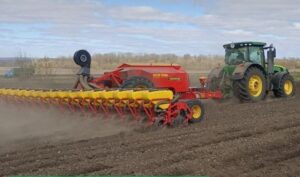
Agrotrade has completed the spring sowing of spring crops, for which it has allocated more than 30 thousand hectares, the company’s press service posted on Facebook on Wednesday.
According to the report, favorable weather in early spring allowed Agrotrade to start sowing in March, although it had previously started in April. However, due to precipitation, field work had to be suspended for some time, and when it resumed, more machinery had to be used than planned.
“This year, we focused on using our own equipment in the problem areas near the sites of shelling and active hostilities. This allowed us to work efficiently despite limited working hours and problems with satellite navigation. The delay caused by weather conditions did not have a significant impact and did not cause any economic losses, as we had foreseen the possibility of using additional equipment in advance. As a result, we completed the spring sowing campaign even ahead of schedule,” said Oleksandr Ovsyanyk, Director of the Agricultural Department.
According to him, Agrotrade has planted 12.52 thou hectares of sunflower, 8.27 thou hectares of soybeans, 6.4 thou hectares of corn, 3.75 thou hectares of spring wheat, and 230 thou hectares of industrial hemp for the 2014 harvest. Buckwheat and peanuts were also sown for the first time.
The Agrotrade Group is a vertically integrated holding company with a full agro-industrial cycle (production, processing, storage and trade of agricultural products). It cultivates over 70 thousand hectares of land in Chernihiv, Sumy, Poltava and Kharkiv regions. Its main crops are sunflower, corn, winter wheat, soybeans and rapeseed. It has its own network of elevators with a simultaneous storage capacity of 570 thousand tons.
The group also produces hybrid seeds of corn and sunflower, barley, and winter wheat. In 2014, a seed plant with a capacity of 20 thousand tons of seeds per year was built on the basis of Kolos seed farm (Kharkiv region). In 2018, Agrotrade launched its own brand Agroseeds on the market.
Vsevolod Kozhemiako is the founder and CEO of Agrotrade.
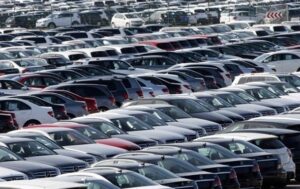
Registrations of new commercial vehicles (trucks and special vehicles) in May 2024 increased by 18% compared to the same month in 2023 – up to 1127 units, which is also 7% more than in April, Ukravtoprom reports in its telegram channel.
According to the report, the top five brands in the new commercial vehicle market last month were Renault – 305 units, Citroen – 115 units, MAN – 92 units, Ford – 86 units, and Iveco – 53 units. At the same time, the top five did not include Scania, which ranked second in April.
As reported with reference to Ukravtoprom data, in May last year, 955 trucks and special vehicles were sold in Ukraine, compared to 460 in the same month in 2022. The top five leaders were Renault (327 units), Volkswagen (81 units), Mercedes-Benz (66 units), Citroen (66 units), and Peugeot (52 units).
According to the association, in January-May 2024, more than 5 thousand new vehicles joined the Ukrainian fleet of trucks and special vehicles, which is 22% more than in the same period last year.
At the same time, AUTO-Consulting, an information and analytical group, analyzing the segment of trucks with a gross vehicle weight of more than 3.5 tons, noted on its website that in May it sent a positive signal – sales increased by 19% by May 2023, to more than 400 units, which made it possible to move to a small (5%) increase in this market segment in five months.
At the same time, the leader has changed – instead of Scania (as of April), it is MAN with a 21% increase in sales, and Volvo, which increased sales by 71%, took second place. Ford Trucks came in third.
Isuzu, as well as a number of Chinese brands, started to increase sales: Howo, DongFeng, JAC.
AUTO-Consulting also analyzed sales in the business car segment, which has always been a litmus test of sentiment in the economically active part of society.
Thus, according to experts, in May, the volume of deliveries of LCVs (gross vehicle weight up to 3.5 tons) decreased by 2.9% compared to the same month last year, but in January-May the market still shows a 22% increase.
It is noted that there is no sharp increase in demand for electric vans – only six units were purchased in May (compared to two in May 2023), but this is less than 1% of the new LCV market.
Renault became the segment leader with a 38% share.
As reported, in 2023, according to Ukravtoprom, registrations of new commercial vehicles in Ukraine increased by 65% compared to 2022 – to 11.3 thousand units. At the same time, the segment of trucks over 3.5 tons, according to AUTO-Consulting, increased by 56.5% – to 4853 units.
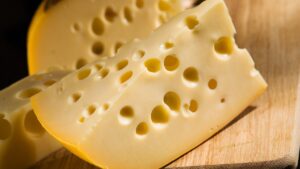
Sales of cheese on the domestic market are becoming more difficult, but cheese makers continue to actively produce it, as they consider cheese making more attractive than the production of exchange dairy products, Infagro news agency reported.
“Sales managers have to constantly work in promotions to get rid of stocks in warehouses. Promotional discounts can be quite significant. Such cheese is already becoming competitive with imported counterparts, which are also massively sold in promotions,” analysts advise and point out that European suppliers are becoming less interested in supplying cheese to Ukraine, and they will not rush to increase volumes in the future.
According to experts, due to difficulties with sales in the domestic market and the devaluation of the hryvnia, cheese exports are becoming even more important for producers. It is especially interesting for exporters to Kazakhstan.
“Production of semi-hard and white cheese may even increase in May. At the same time, many products have been stored in warehouses, and in June the production of such cheese should decrease significantly,” Infagro predicts.